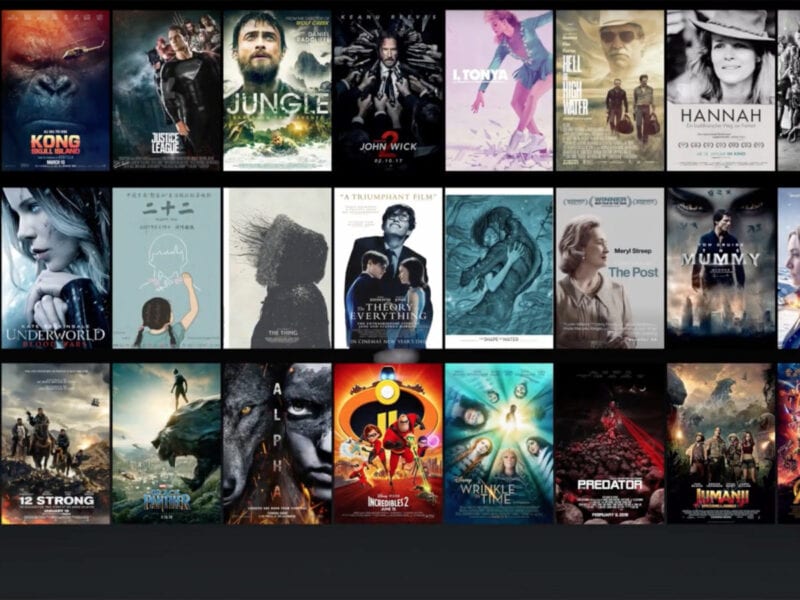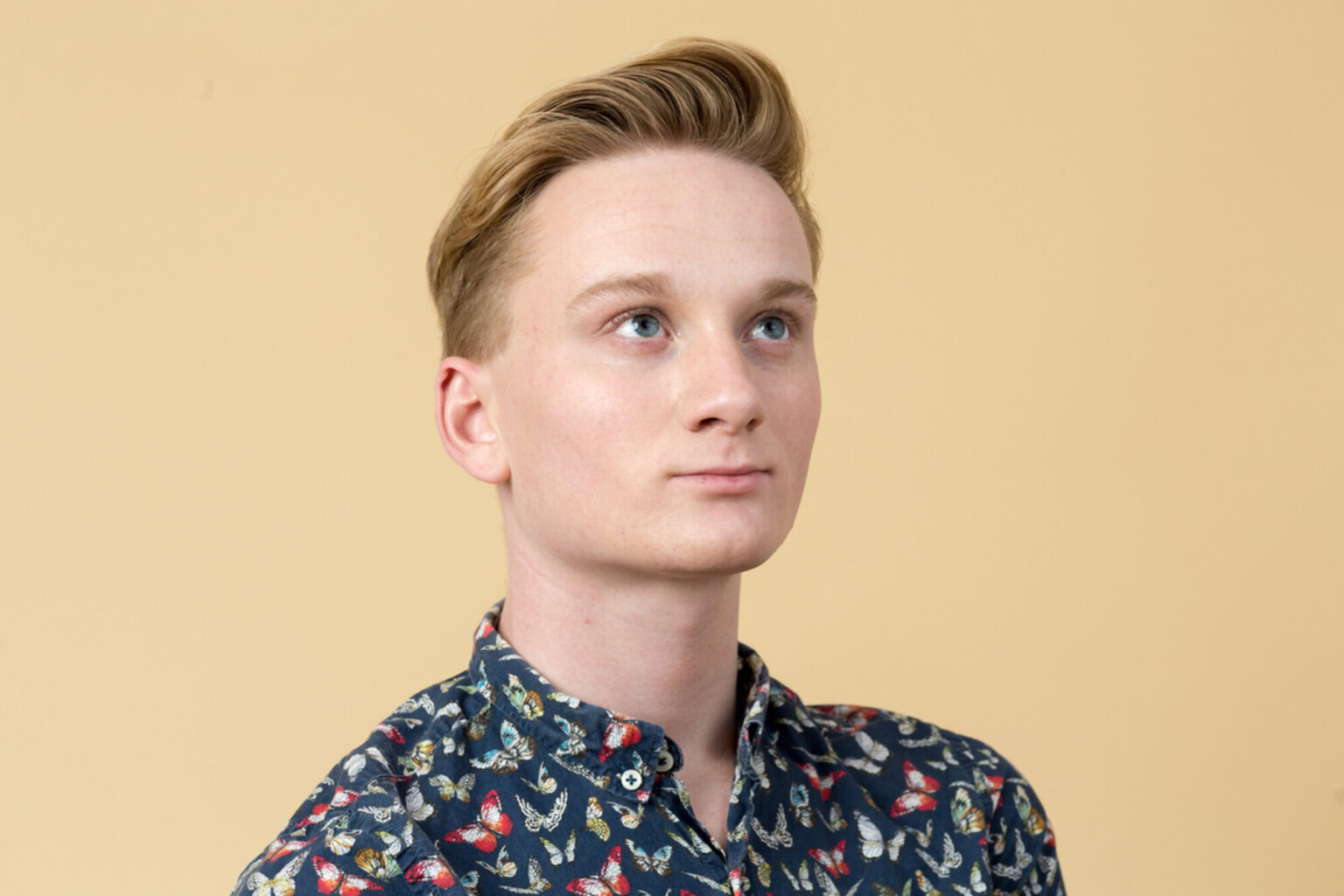
Shoot for the Stars: Get to know ‘Gone Missing’ director Ethan Paisley
Some directors & producers may come & go, but we’re happy to announce that Ethan Paisley is here to stay! The Art of Escape filmmaker is currently in the midst of a film he’s co-producing, On Our Way.
However, nothing compares to his latest mind-blowing documentary – Gone Missing, which focuses on the tragedies surrounding the enormous number of murders and missing Indigenous Americans across the United States.
Thankfully, we got a chance to get up close & personal with the award-winning director Ethan Paisley and learn more about his intense work in the film industry. Here’s what he had to say.
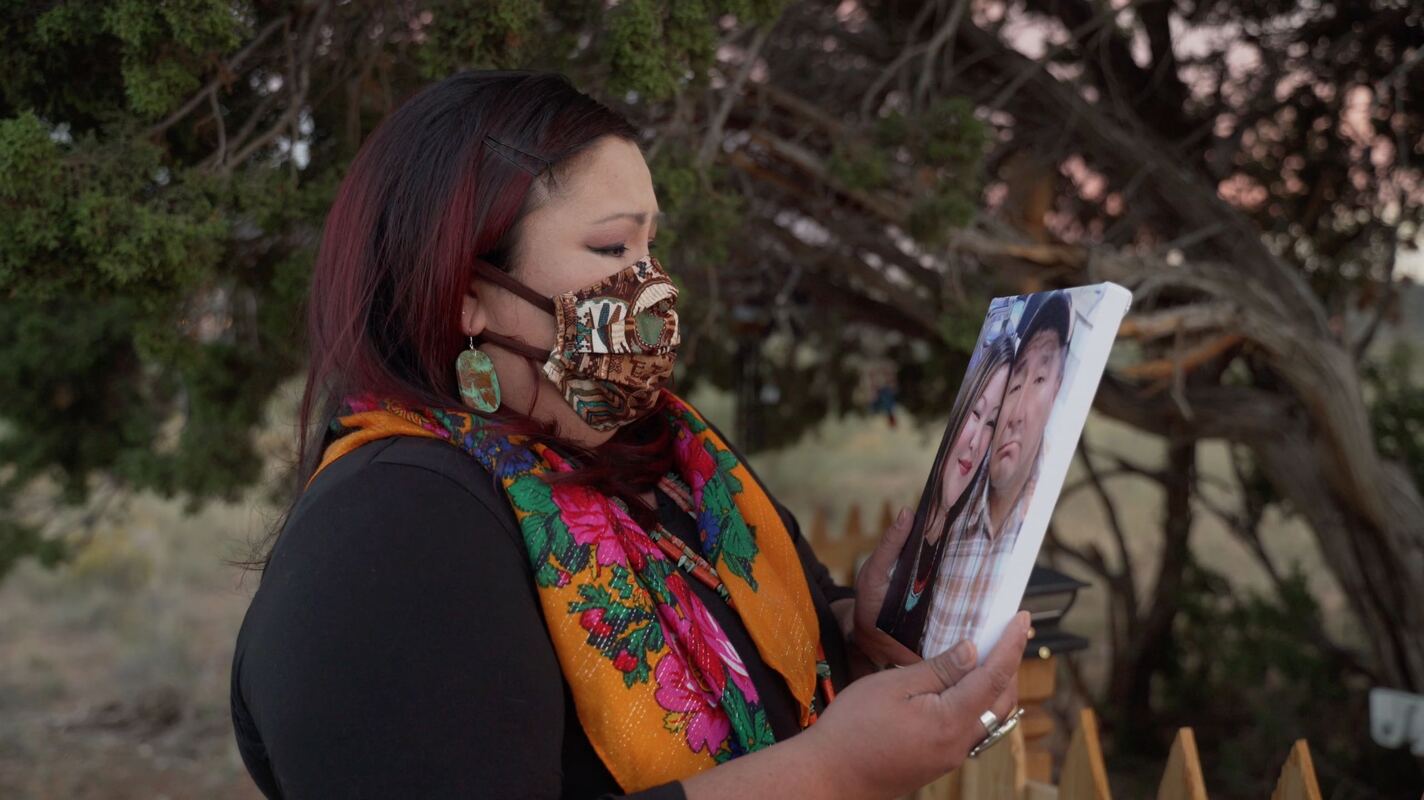
Tell us about your journey into film. What did you do before becoming a filmmaker?
Before I made movies I made plays. Before that I can’t recall. I’ve been doing this since I can remember.
Was there any particular film or TV show that inspired you to become a filmmaker?
I got turned onto YouTube and started making parody and comedy sketch videos when I was in middle school. It wasn’t until I took my first film class at Idyllwild Arts that I knew I wanted to turn from YouTuber to filmmaker. Particularly, the films Rosemary’s Baby, The Bling Ring, and The Canyons influenced my writing and aesthetics. Isn’t that a weird selection of films?
Who are your current influences?
Michaela Coel’s I May Destroy You literally destroyed me when it was over. It was the best television I’ve seen in a while and really inspired me to begin re-developing a feature script of mine about a similar subject matter. Ava Duvernay & Jane Fonda have also inspired me recently, because they are living proof you’re never too old to pursue your calling.
What was your first project you worked on, and what did you learn from the experience?
The first film set I was on was a short film I played the lead in. I learned to always put my best foot forward and to stay in my lane. The same rules apply today.

Why did you transition from acting to directing?
I was sick of not booking anything because of how I looked, and I always loved telling my own stories, so when I realized I could do both and act in my own projects, it just made sense.
Is there a particular part of the filmmaking process you prefer over the rest?
I think development & post-production are my favorite points in the filmmaking process. To me this is where filmmakers get to be most creative. I feel like during production there can be many limitations due to budget and time, whereas when you’re writing or editing, filmmakers have full control of the world they’re creating.
Walk us through your creative process.
For me, it’s undefined. I can get inspired by pretty much anything. I think I write the best when I’m occupied with other projects, because that way I’m not worried about writing perfectly or writing only. It’s my escape and I can focus my stress on whatever else I’m occupied with.
Do you listen to any particular music to help you create?
On Gone Missing I listened to Diné oral music to help envision the world we’d be capturing. I have a newfound love and respect for Diné culture and I intend to go back to Navajo Nation soon.
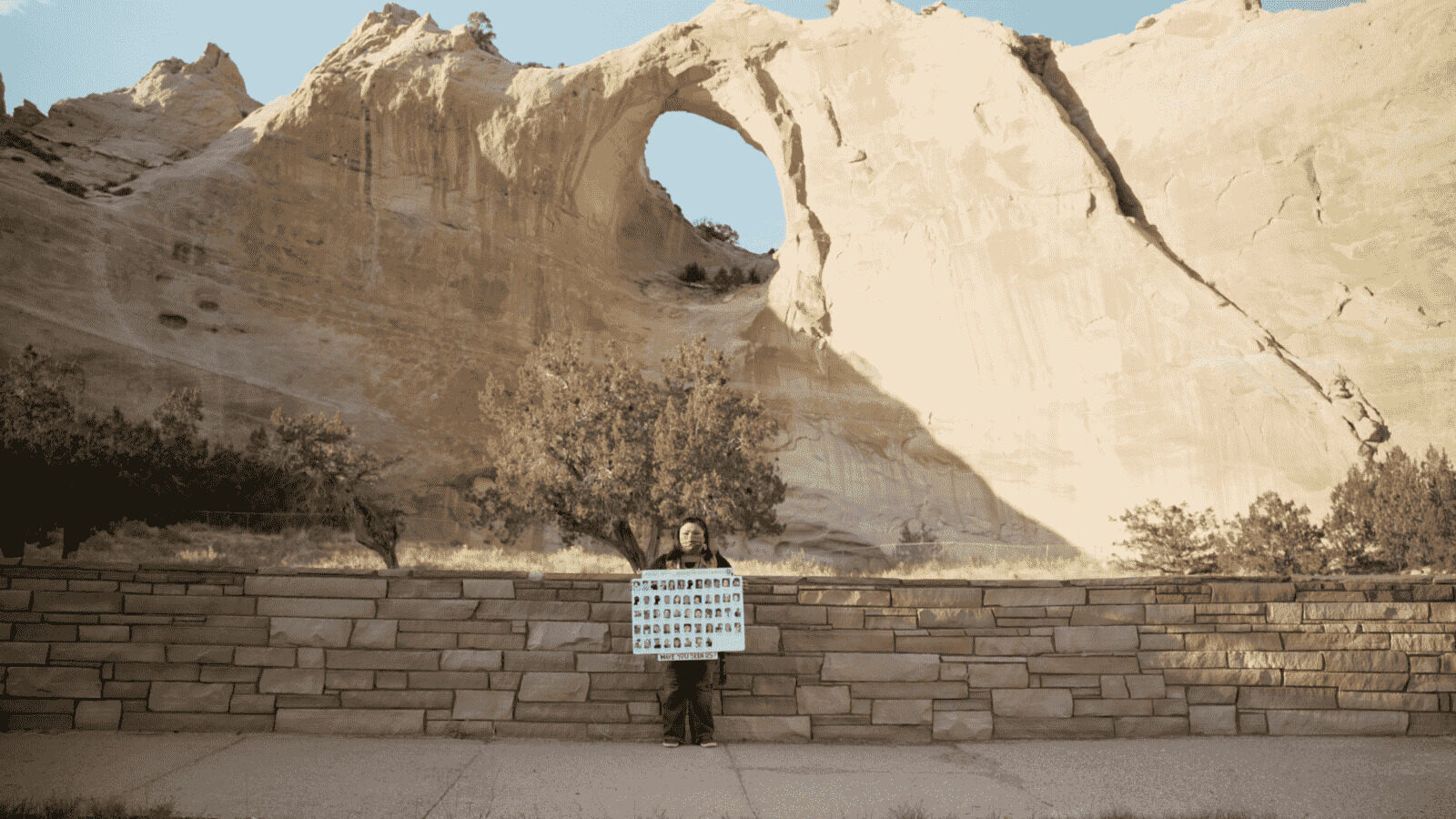
Do you have experience with mentors? If so, would you recommend them for up and coming filmmakers?
Absolutely. I’ve learned everything from my mentors. I think filmmakers need a strong support system around them, especially when they get started. It’s easy to feel like your vision is unattainable or unworthy because of all the competition.
My mentors have always had my back and pushed me towards opportunities that have helped me realize my vision & passion.
How did you get involved with Gone Missing?
I met the star of the film, Meskee Yanabah Yatsayte, on an anti-human trafficking podcast I was co-hosting at the beginning of the pandemic. She shared how the Navajo Nation was experiencing the highest rates of COVID in the USA, and how it correlated with high rates of missing and murdered Navajo people.
I couldn’t un-hear the stories she told. I knew I had to go and capture what was happening. A couple weeks later, Gone Missing was born.
What was your experience working on Gone Missing?
One word: life-changing. When the pandemic started, I took 4 months off of working. Not only because circumstances had changed, but because I needed a break from the industry and a moment to reflect on what I wanted to do next.
Making this film reinvigorated my passion and reminded me how by making & sharing films, it is possible to achieve the changes you wish to see in the world.
While Gone Missing is far from your first time directing or producing, it does mark the first time you directed or produced a documentary. How does that differ from directing a fictional short?
It’s very different, but it almost felt more natural. Pre-production was a matter of outlining the locations and interviews we wanted to shoot, and then coordinating a schedule with Meskee.
Once we got there, there were more stories than we expected, so we just went with it and shot as much as we could in the three days we were there. It will definitely not be my last visit and I’m hoping to go back and film another project very soon.

How did the pandemic affect work on Gone Missing?
We were lucky to be able to shoot in Gallup, NM outside the Navajo Nation when we did. COVID rates were peaking and we had to be extra careful about safety precautions.
What do you hope viewers take away after watching Gone Missing?
I hope Gone Missing inspires viewers to begin reparations to our Indigenous people. The state of missing and murdered people in Navajo Nation today is simply a continuation of centuries of genocide and oppression upheld by our government.
It’s not just COVID killing these people, it’s lack of clean drinking water, addiction, underfunded education and law enforcement, and most significantly, a lack of hope.
Please if you can consider donating to Navajo Nation Missing Persons Updates, a grassroots organization led by Meskee that seeks to return missing people back to their families: https://www.gofundme.com/f/21wripgko0
Where do you see yourself in five years?
I see myself creating change on a global-scale through making films, TV, new media, collaborating with companies like Vice and Netflix to bring stories that matter into family’s homes. I hope to be living somewhere by the beach with a dog running my own non-for-profit production company focused on creating philanthropic media.
For being so young, you’ve had quite an impressive career. Do you think your age has helped or hindered you in your career thus far?
I don’t know, because I try not to pay attention to what people think of me. I just do me and if that means I’m more or less successful, so be it.
What are five films you think everyone should see in their lifetime?
Chinatown, Taxi Driver, 8½ , Virgin Suicides, The Parent Trap. They’re not particularly important, just some of my favorites.
If any director could direct the story of your life, who would you choose and why?
Sofia Coppola. I like her interpretation of LA and smalltown American suburbia, which are the only two places I’ve lived in my life.
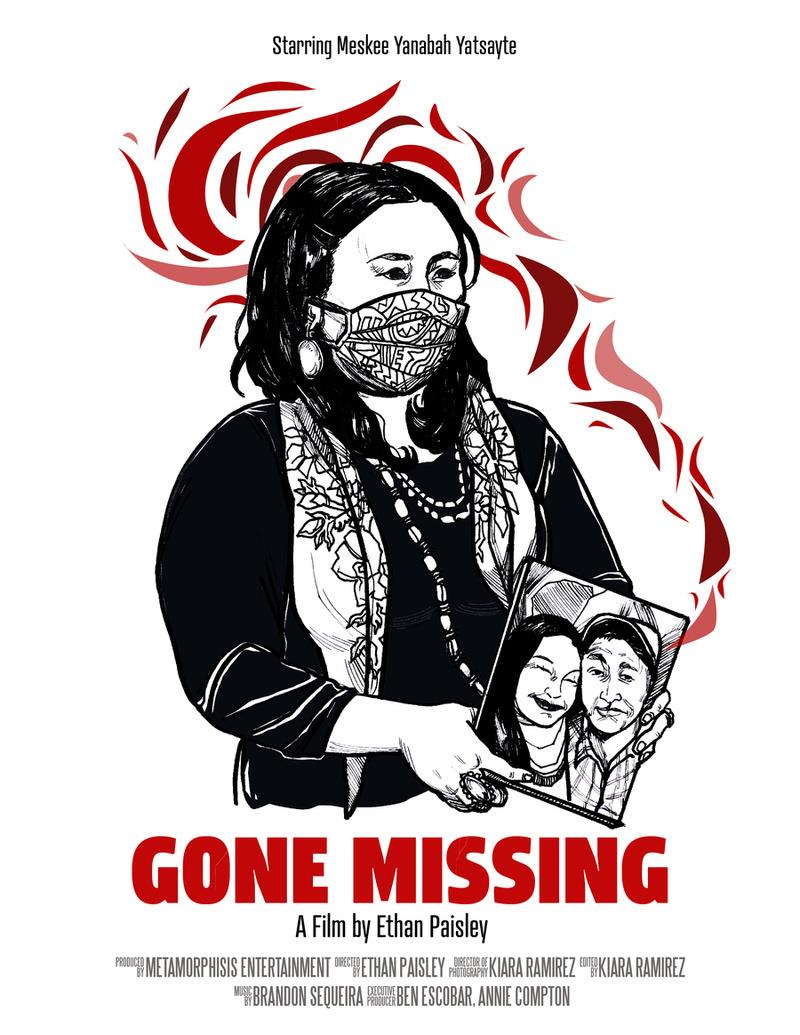
What’s next on the docket for you?
I am directing a narrative short film next month called The Bystander Effect, about being an active bystander to social injustice. I’m co-producing a feature film On Our Way at the moment about a filmmaker making their first movie, and developing a couple other features as well. I am hoping to direct my next feature at the end of this year or beginning of next.
Do you think the film industry will be able to bounce back after COVID-19 dies down?
Yes! It already has.
Who are some up and coming indie filmmakers we should have on our radar?
Sophie Lane Curtis, Jimmy Giannopolous, Phillip Youmans, Kiara Ramirez (who shot and edited Gone Missing!), Erica Eng. Amazing directors who have all taught me and really inspire me.
Do you consider yourself an indie filmmaker? If so, do you think you’ll always be one?
I’m always just gonna be me, follow my gut, and shoot for the stars. If that means I’m indie, then I’m indie as heck.







